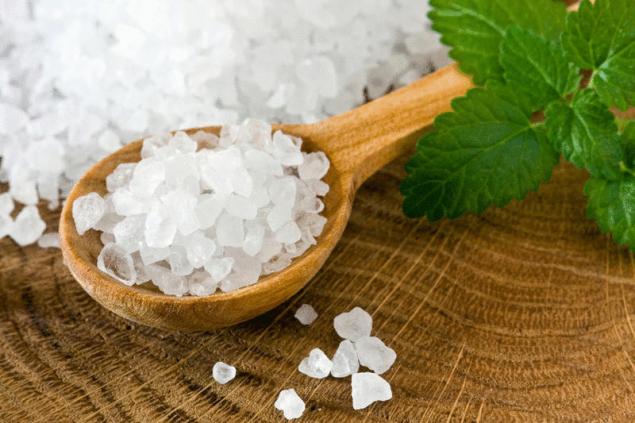409
When to add salt: tips chefs
When you add salt to water while cooking pasta before you put in pasta, or when she is almost ready And when salt meat and sauces? It turns out that adding salt to a dish can significantly affect the taste, and a true master of his craft (ie the chefs), know when to do it.
Salt not only adds so beloved salty taste, but also affects the flavor and suppresses bitterness and enhances the sweetness.
Get rid of bitterness
The salts have a magical ability to inhibit bitterness, which is why some coffee lovers like to add a pinch of salt to coffee before you start to cook it. And this is why salty olives are delicious (raw olives are very bitter). To check this property is very simple: you need to put on one side of the language of salt, and then the second side of something bitter. And you will immediately feel the salty taste overwhelms the bitterness.
Add a little sweets
This applies to those products, which is bitter, and sweet taste. A good example of this product — the grapefruit. The sweet flesh of this fruit is enclosed in a bitter shell of a thin film. If you remove this tape, you will be able to enjoy the sweetness. Also you can't remove the film (it's quite a troublesome task), and add instead, a little salt, and bitter taste will go away. Moreover, salt doesn't just remove the bitter taste but also enhances the sweetness.
Strengthen the flavor
In addition to removing the bitterness and enhance the sweet taste of salt enhances the flavor. For example, if you add salt to the grapefruit or melon, their flavor will be more sweet and strong.
When to add salt?
Based on the foregoing, it becomes clear that adding salt to meals can significantly affect their taste and aroma.
Legumes
Legumes are not recommended to cook in salted water, as because of this they become stiff and crack.
Mushrooms
Mushrooms also need to add salt only at the very end of cooking, otherwise they get flabby, wrinkled and not as flavorful.
Meat and sauces
If you want your sauces and meats uncovered all their taste, they need to add salt in the beginning of cooking. You remember the recommendations on cooking steak: repel, salt and pepper and leave to rest for 15 minutes.
Pasta
Usually cooks add salt to the water that starts to boil, and then add in salted boiling water with the pasta. Also, many add very little water from the pasta in the sauce for this pasta.

Source
Source: /users/559
Salt not only adds so beloved salty taste, but also affects the flavor and suppresses bitterness and enhances the sweetness.
Get rid of bitterness
The salts have a magical ability to inhibit bitterness, which is why some coffee lovers like to add a pinch of salt to coffee before you start to cook it. And this is why salty olives are delicious (raw olives are very bitter). To check this property is very simple: you need to put on one side of the language of salt, and then the second side of something bitter. And you will immediately feel the salty taste overwhelms the bitterness.
Add a little sweets
This applies to those products, which is bitter, and sweet taste. A good example of this product — the grapefruit. The sweet flesh of this fruit is enclosed in a bitter shell of a thin film. If you remove this tape, you will be able to enjoy the sweetness. Also you can't remove the film (it's quite a troublesome task), and add instead, a little salt, and bitter taste will go away. Moreover, salt doesn't just remove the bitter taste but also enhances the sweetness.
Strengthen the flavor
In addition to removing the bitterness and enhance the sweet taste of salt enhances the flavor. For example, if you add salt to the grapefruit or melon, their flavor will be more sweet and strong.
When to add salt?
Based on the foregoing, it becomes clear that adding salt to meals can significantly affect their taste and aroma.
Legumes
Legumes are not recommended to cook in salted water, as because of this they become stiff and crack.
Mushrooms
Mushrooms also need to add salt only at the very end of cooking, otherwise they get flabby, wrinkled and not as flavorful.
Meat and sauces
If you want your sauces and meats uncovered all their taste, they need to add salt in the beginning of cooking. You remember the recommendations on cooking steak: repel, salt and pepper and leave to rest for 15 minutes.
Pasta
Usually cooks add salt to the water that starts to boil, and then add in salted boiling water with the pasta. Also, many add very little water from the pasta in the sauce for this pasta.

Source
Source: /users/559
























